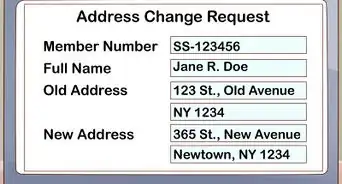This article was co-authored by Tracy Carver, PhD and by wikiHow staff writer, Kira Jan. Dr. Tracy Carver is an award-winning Licensed Psychologist based in Austin, Texas. Dr. Carver specializes in counseling for issues related to self-esteem, anxiety, depression, and psychedelic integration. She holds a BS in Psychology from Virginia Commonwealth University, an MA in Educational Psychology, and a Ph.D. in Counseling Psychology from The University of Texas at Austin. Dr. Carver also completed an internship in Clinical Psychology through Harvard University Medical School. She was voted one of the Best Mental Health Professionals in Austin for four years in a row by Austin Fit Magazine. Dr. Carver has been featured in Austin Monthly, Austin Woman Magazine, Life in Travis Heights, and KVUE (the Austin affiliate for ABC News).
There are 18 references cited in this article, which can be found at the bottom of the page.
This article has been viewed 29,632 times.
When someone seems emotionally unstable, it can be hard to know exactly what to do or say to help them. While you can’t force anyone to seek out professional help, you can support an emotionally unstable person by validating their experiences, explaining the benefits of treatment, and offering caring support.[1] We’ve compiled ways for you to guide the person towards the professional services they need while offering the best support you can provide them.
Steps
References
- ↑ https://www.youtube.com/watch?v=I6dqnHmRRRg&t=69s
- ↑ https://www.helpguide.org/articles/depression/helping-someone-with-depression.htm
- ↑ https://www.mentalhealth.org.uk/publications/supporting-someone-mental-health-problem
- ↑ https://www.apa.org/topics/mental-health/help-emotional-crisis
- ↑ https://psychcentral.com/lib/become-a-better-listener-active-listening
- ↑ https://www.sfsuicide.org/prevention-strategies/how-to-help-someone/
- ↑ https://caps.ucsc.edu/responding-to-distressed-students.html
- ↑ https://afsp.org/story/crisis-negotiation-how-to-talk-to-someone-you-re-worried-about
- ↑ https://www.helpguide.org/articles/bipolar-disorder/helping-someone-with-bipolar-disorder.htm
- ↑ https://caps.ucsc.edu/responding-to-distressed-students.html
- ↑ https://www.helpguide.org/articles/depression/helping-someone-with-depression.htm
- ↑ https://www.apa.org/topics/mental-health/help-emotional-crisis
- ↑ https://www.camh.ca/en/health-info/guides-and-publications/when-a-family-member-is-unwilling-to-seek-help
- ↑ Tracy Carver, PhD. Licensed Psychologist. Expert Interview. 7 January 2021.
- ↑ https://www.nbcnews.com/better/health/mental-health-services-how-get-treatment-if-you-can-t-ncna875176
- ↑ https://www.youtube.com/watch?v=I6dqnHmRRRg&t=176s&ab_channel=KatiMorton
- ↑ https://www.mentalhealth.org.uk/publications/supporting-someone-mental-health-problem
- ↑ https://www.ncbi.nlm.nih.gov/pmc/articles/PMC4225959/
- ↑ https://www.mayoclinic.org/diseases-conditions/depression/in-depth/depression/art-20045943
- ↑ https://www.mayoclinic.org/diseases-conditions/depression/in-depth/depression/art-20045943
- ↑ https://www.nimh.nih.gov/health/topics/suicide-prevention/
- ↑ https://www.mind.org.uk/information-support/helping-someone-else/carers-friends-family-coping-support/looking-after-yourself/
- ↑ https://health.clevelandclinic.org/6-dos-and-donts-for-supporting-someone-who-has-depression/





































































